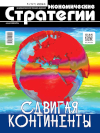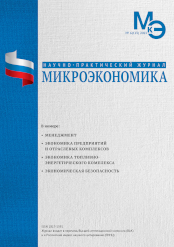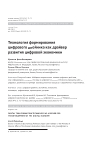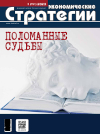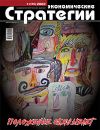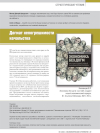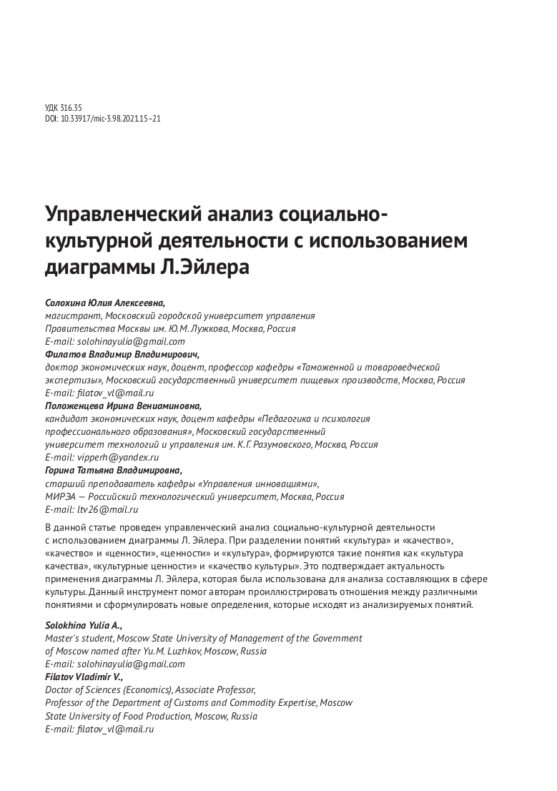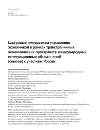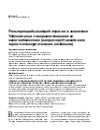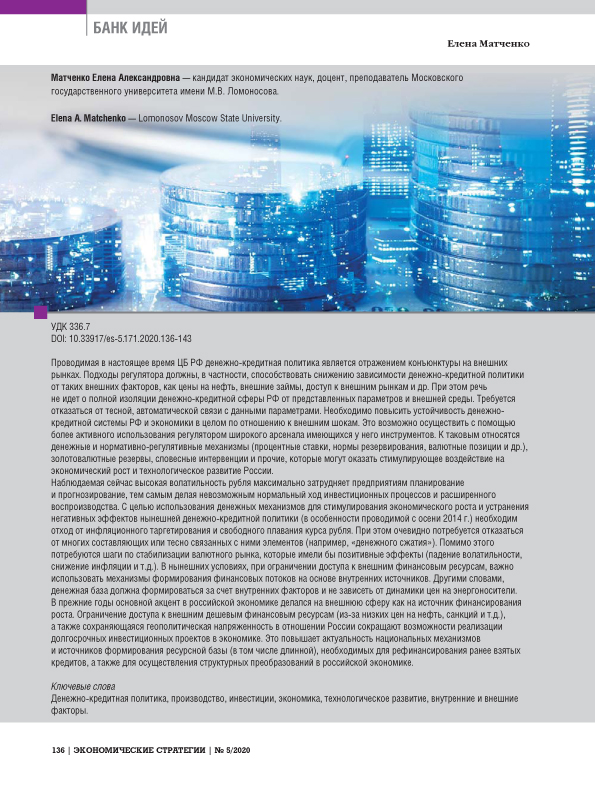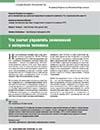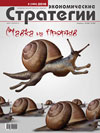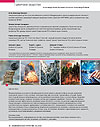A study of the practice of cross-border electronic commerce using customs warehouses in the Russian Federation
DOI: 10.33917/es-5.197.2024.62-69
The article deals with topical issues of the creation and functioning of customs warehouses in the Russian Federation. The approaches to grouping customs warehouses are investigated, the results of the dynamics and structure of the e-commerce market are presented. The possibilities of organizing cross-border electronic commerce in the Russian Federation using customs warehouses have been studied. The volume of sales of goods in the framework of e-commerce is analyzed and the conditions for monitoring commodity flows along the entire chain of gross value creation are determined. Recommendations have been developed to improve approaches to planning and controlling the turnover of cross-border electronic commerce.
References:
1. Chupina Zh.S., Zorina S.M., Annaberdyeva L. Strategii rossiyskikh i zarubezhnykh marketpleysov [Strategies of Russian and Foreign Marketplaces].Aktual’nye issledovaniya, 2023, no 13(143), pp. 82–86, available at: https://apni.ru/article/5903-strategii-rossijskikh-i-zarubezhnikh-marketpl
2. Tamozhennyy kodeks Rossiyskoy Federatsii ot 28 maya 2003 g. N 61-FZ (TK RF) [The Customs Code of the Russian Federation of May 28, 2003 No. 61-FZ (TC RF)]. Garant, available at: https://base.garant.ru/5758424/
3. Mosbi A. Rost prodazh elektronnoy kommerotsii v mire (2016–2027) [Global E-Commerce Sales Growth (2016–2027)]. Yaguara.co, available at: https:// www.yaguara.co/global-ecommerce-sales-growth/
4. Itogi vneshney torgovli so vsemi stranami [Results of Foreign Trade With all Countries]. Federal’naya tamozhennaya sluzhba, available at: https://customs. gov.ru/statistic/vneshn-torg/vneshn-torg-countries?ysclid=lvz0dxpffl202622345
5. Obzor mezhdunarodno-pravovogo regulirovaniya torgovli [Review of International Legal Regulation of Trade]. Agroeksport, 2020, 29 sentyabrya, available at: https://mcx.gov.ru/upload/iblock/2cd/2cdd959195e9f599abe0c049a81404ec.pdf?ysclid=lvy3x8cu3d844112120
6. Top-10 eCommerce rynkov mira: mirovye prodazhi, trendy, statistika [Top 10 eCommerce Markets in the World: Global Sales, Trends, Statistics]. Shopolog, available at: https://www.shopolog.ru/metodichka/analytics/top-10-ecommerce-rynkov-mira-mirovye-prodazhi-trendy-statistika/?ysclid=lvwhvy0 3ny639675011
7. Zakonodatel’nye novelly v chasti administrirovaniya tamozhennykh platezhey v otnoshenii tovarov transgranichnoy internet-torgovli. Vystuplenie zamestitelya nachal’nika GUFTDiTR V.I. Reshetnikova [Legislative Innovations in the Administration of Customs Payments in Respect of Goods of Cross-border Internet Trade. Speech by the Deputy head of the GUFTDiTR V.I. Reshetnikov], available at: https://forum.customs.gov.ru/uploads/1_4.pdf
8. Monitoring aktual’nykh sobytiy v oblasti mezhdunarodnoy torgovli N 55 [Monitoring of Current Events in the Field of International Trade No. 55]. ATES, 2020, 30 sentyabrya, available at: https://www.vavt-imef.ru/wp-content/uploads/2020/09/Monitoring_55.pdf
9. Karashchuk O.S. Bondovye sklady: sovremennaya infrastruktura torgovli sel’skokhozyaystvennoy produktsiey [Bonded Warehouses: Modern Infrastructure of Trade in Agricultural Products]. Agrarnyy vestnik Urala, 2020, no 3(194), pp. 82–90, DOI: 10.32417/1997-4868-2020-194-3-82-90


